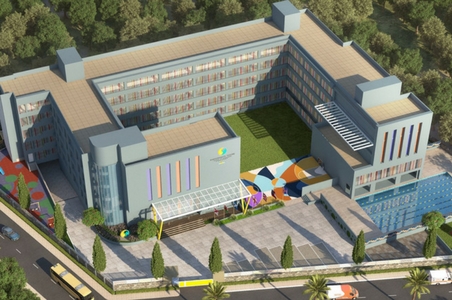A Child's Development and How RTSE helps
– James J. Heckman
A child’s world expands during early school days as he/she makes new friends and relationships with secondary caregiver adults that are beyond family. They become more active and communicative and begin to explore and learn new things. This is a very definitive stage in the development of a child wherein parents and other adults play a crucial role.
The overall development at this stage directly impacts the kind of adults they will grow up to become. This development is at multiple levels - physical, social, intellectual and emotional development. Therefore, it is necessary to be mindful of all aspects of the child’s development and invest in making this stage rewarding.
Emotional Development:
Providing a variety of experiences for the development of the child’s emotional skills is very essential. It is important to engage in meaningful interactions the child to promote learning and growth. Children need daily opportunities to participate in activities that help them learn new skills and practice existing ones in an enjoyable, stimulating and supportive environment.
Physical Development:
Physical development includes activities that use physical movements to develop gross and fine motor skill. Children learn to channelize their energy and it provides opportunity to learn new things and socialize with peers. Skills such as hopping, climbing, swinging should be developed at this stage. Physical play also benefits a child’s health. Understanding the role of physical play in a child’s development is extremely important.
Intellectual Development:
Intellectual development in children is faster when they are exposed to many mental stimuli. Memory, reasoning, critical thinking and problem-solving skills begin to develop around this time. The cognitive and intellectual development of a child is marked by certain activities and patterns that we can recognize if we know them. So it is important to stimulate a child’s intellectual development by providing them with necessary educational and creative materials.
Social Development:Social development of a child involves development of understanding of personal feelings and others’ feelings. More positive interaction at this stage lead to a socially well-adjusted individual in future. Hampered social interactions marked by negative temperament and behavior modeled by adults should be eliminated. Encouragement and positive reinforcement develops confidence and good self image.
The EARLY YEARS PROGRAMME at RTSE helps our learners to nurture confidence, responsibility, curiosity and creative learning. This program makes use of a range of individual and group activities to create a lively and positive learning environment. We promote games, songs, projects, storytelling, role-play, painting and multisensory activities which help develop our learners’ skills in literacy and numeracy. We provide individual attention to each learner to facilitate optimum learning and development.
We teach our learners how to adjust to new situations, demonstrate trust in adults and recognize their own feelings so as to manage them appropriately. We also teach our learners to respect and care for their and the classroom belongings while learning to follow rules and regulations. We also see to it that learners mingle with fellow classmates and respect the rights of others.
Active participation in sports and physical activities like balancing while moving, climbing up / down, pedaling and steering a tricycle, kicking and catching skills is promoted at RTSE. We lay emphasis on learning and problem solving through the CAIE curriculum which is the world's largest provider of international education programs.
RTSE boasts of a child-friendly campus. The school provides an environment where children are safe and nurtured with love and affection. The staff is trained to safeguard learners’ well-being within the school premises.


